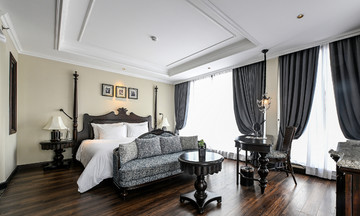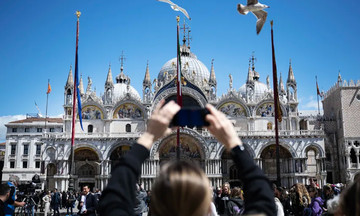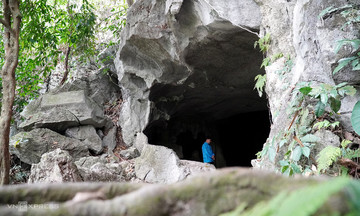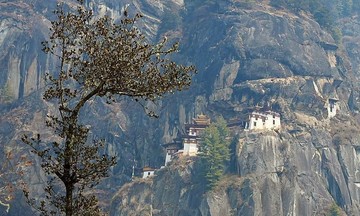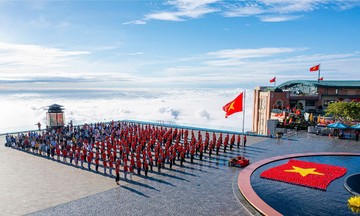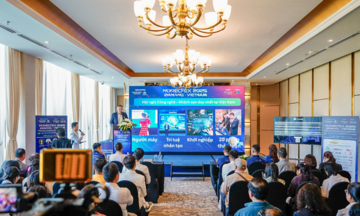On 11/8/2025, the Vietnamese government issued Resolution 229, granting 45-day visa exemptions to citizens of 12 European countries: Belgium, Bulgaria, Croatia, the Czech Republic, Hungary, Luxembourg, the Netherlands, Poland, Romania, Slovakia, Slovenia, and Switzerland. The visa exemption applies to all passport types for tourism purposes and is valid from 15/8/2025 to 14/8/2028. This brings the total number of countries whose citizens enjoy visa-free entry to Vietnam to 24.
Three days prior, the government also approved visa exemptions for six groups deemed crucial for socio-economic development, including scientists, investors, and billionaires.
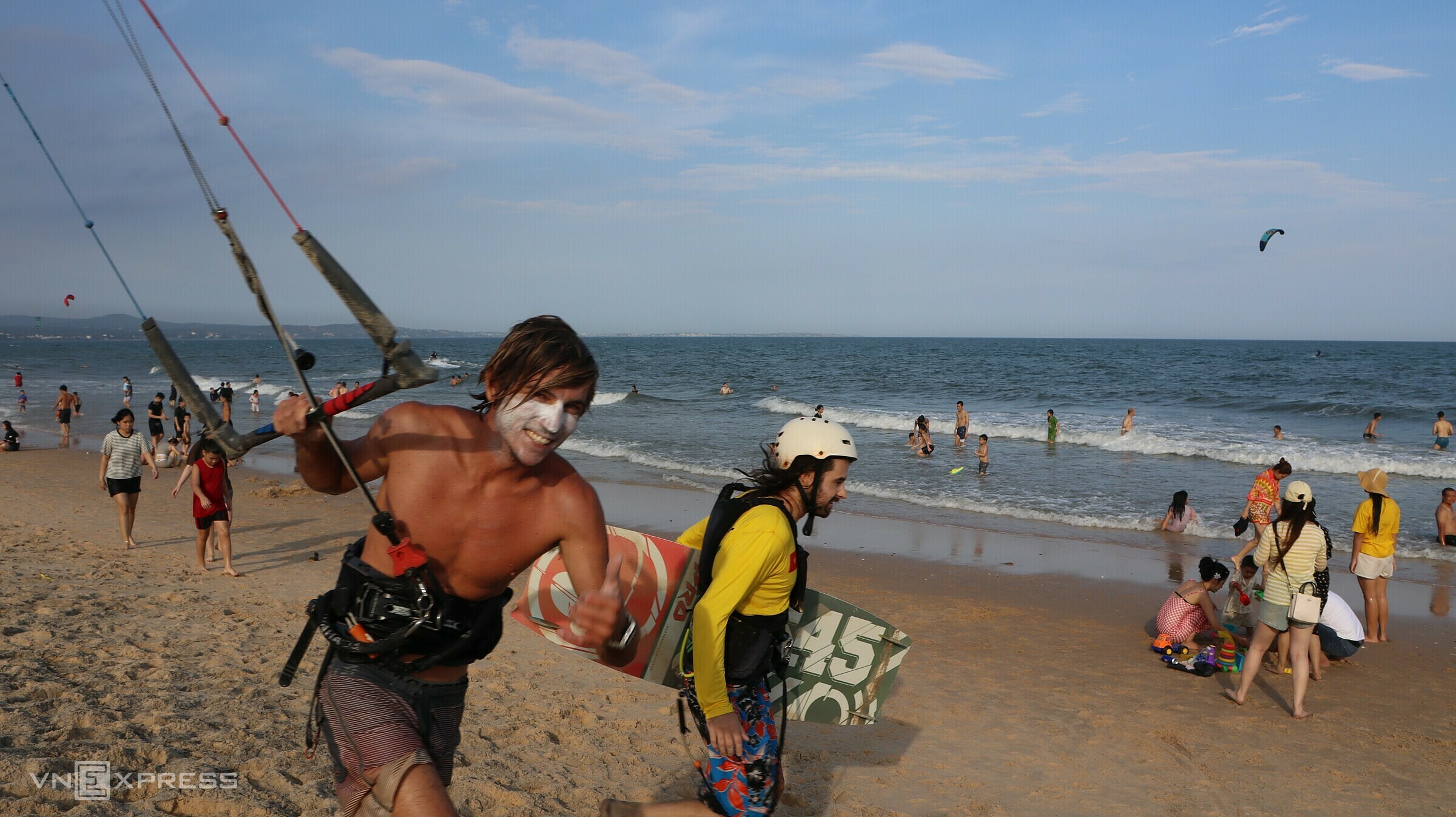 |
Foreign tourists kitesurfing in Mui Ne Beach, Lam Dong Province, July 2025. Photo: Viet Quoc |
Foreign tourists kitesurfing in Mui Ne Beach, Lam Dong Province, July 2025. Photo: Viet Quoc
The Ministry of Culture, Sports, and Tourism stated this new policy is essential for attracting high-quality international tourists. Vu Van Tuyen, Director of Travelogy, sees it as a welcoming message of openness, friendliness, and global integration.
Pham Hai Quynh, Director of the Asian Development Institute, remarked, "Improving visa policies offers a significant opportunity not only for tourism but also for Vietnam's economic growth." He believes these relaxed visa regulations are a crucial step towards achieving Vietnam's ambition of matching Thailand's tourism success. Quynh predicts that, barring unforeseen circumstances, Vietnam could welcome 25 to 30 million international visitors in 2026, narrowing the gap with Thailand's annual 40 million.
This new policy targets high-income tourists who tend to stay longer and spend more, seeking quality, sustainable experiences that align with Vietnam's focus on high-end tourism.
The inclusion of billionaires and the ultra-wealthy opens a new luxury tourism market segment for Vietnam. These individuals often seek exclusive, high-class experiences, and Vietnam is well-positioned to cater to their needs: superyacht tours in Ha Long Bay, helicopter sightseeing, Michelin-starred chefs, 5-star resorts in Phu Quoc and Da Nang, private island retreats, and world-class golf courses like The Bluffs (TP HCM) and Ba Na Hills Golf Club (Da Nang).
In the short term, the new policy significantly reduces entry barriers, particularly for adventurous European travelers, encouraging faster decisions to visit Vietnam, especially as its reputation as a friendly and safe destination grows.
The policy also incentivizes travel agencies, hotels, and airlines to develop targeted packages and marketing campaigns: cultural and culinary tours for French tourists, beach resort vacations for Italian and Spanish visitors, and heritage exploration tours for German and Dutch travelers. It's expected to boost bookings for the 2025–2026 peak season, particularly during the late autumn and winter months, ideal for extended stays in Vietnam.
Long-term, Tuyen from Travelogy anticipates the new visa policy will increase tourist numbers by 20% to 25% annually, attracting high-value visitors and benefiting other sectors like aviation, culinary arts, and handicrafts.
Nguyen Van My, Chairman of Lua Viet Tours, believes this policy will establish Vietnam as a welcoming destination on par with Thailand, Malaysia, and Singapore, countries that have long offered visa exemptions to the ultra-wealthy. He also expects it to encourage repeat visits from high-spending tourists, yielding significant economic benefits.
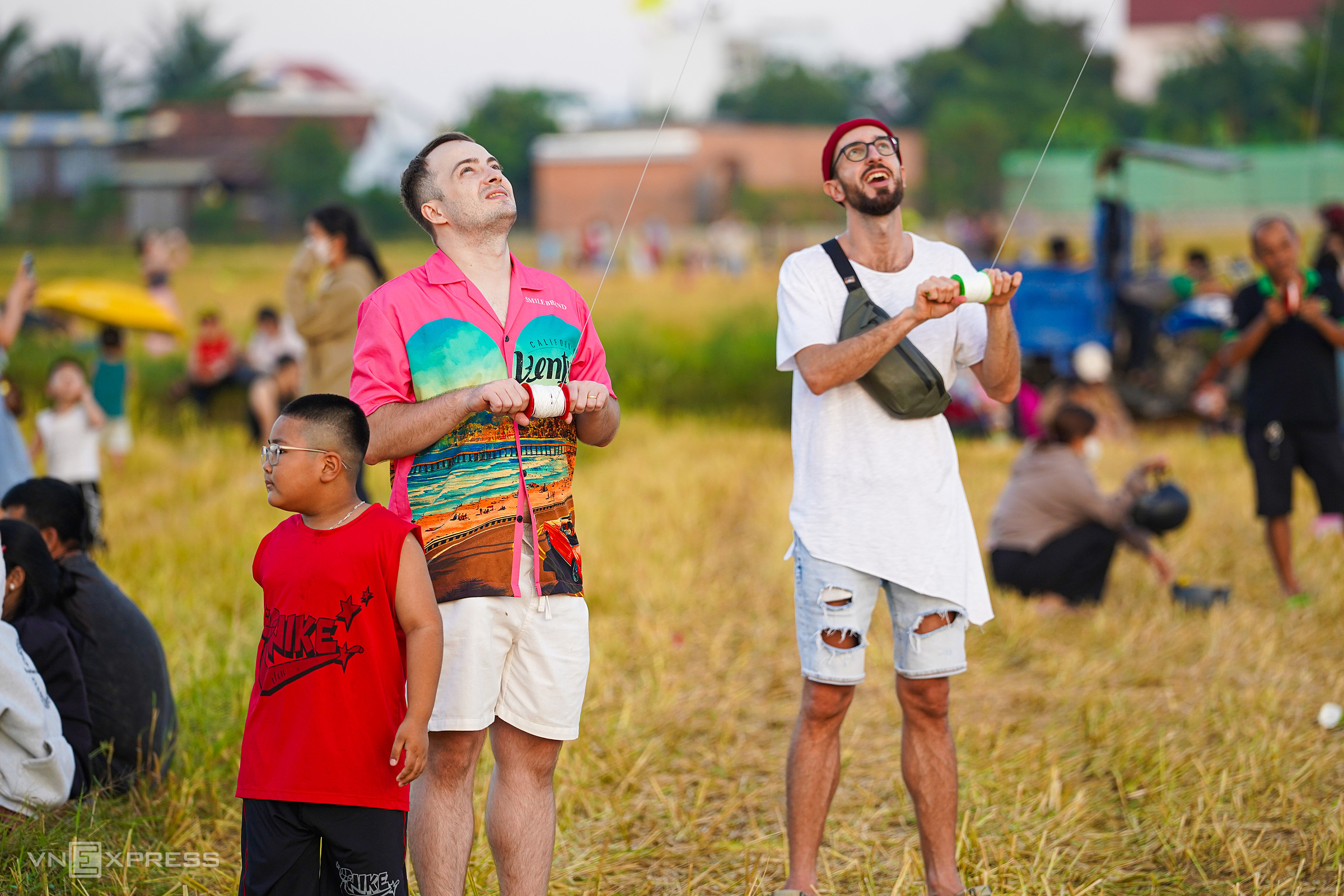 |
Two international tourists enjoy kite flying in Khanh Hoa in April. Photo: Bui Toan |
Two international tourists enjoy kite flying in Khanh Hoa in April. Photo: Bui Toan
The United Nations World Tourism Organization (UNWTO), which has monitored global visa policies since 1963 and regularly updated data since 2008, considers visa policies a crucial government factor influencing international tourism.
Emerging economies tend to be more open than developed ones, with Latin American and Asia-Pacific nations leading in visa facilitation. Despite progress over half a century, the UNWTO still views visa policies as an unnecessary burden for international travelers.
However, Vietnamese tourism experts caution against relying solely on visa policies. Attracting high-spending tourists and encouraging longer stays largely depends on effective global marketing and appealing tourism products.
According to Pham Hai Quynh, while the government's relaxed visa policies contribute to rapid tourism growth, catching up with Thailand requires comprehensive investment in infrastructure, services, and promotion, not just visa policies. With the right approach, Vietnam could rival Thailand's tourism sector within the next 10 years.
Nguyen Van My, Chairman of Lua Viet Tours, emphasizes the need for a more proactive approach to understanding and engaging target markets. Beyond roadshows, tourism fairs, and using key opinion leaders (KOLs) for promotion, he suggests establishing tourism promotion offices in key markets, a strategy successfully employed by neighboring countries. For instance, Tourism Malaysia has 30 representative offices and six marketing offices in 28 countries and territories, while Thailand has 29, according to official tourism statistics.
"While Vietnam's tourism is accelerating, so are other countries. We need to outpace them to catch up," My said.
Phuong Anh




